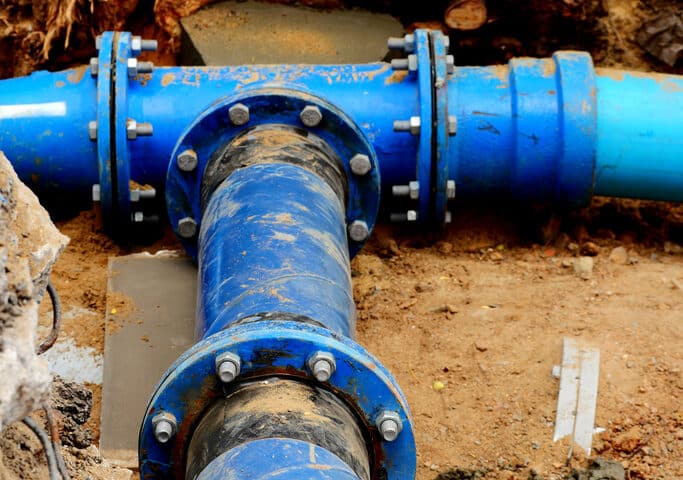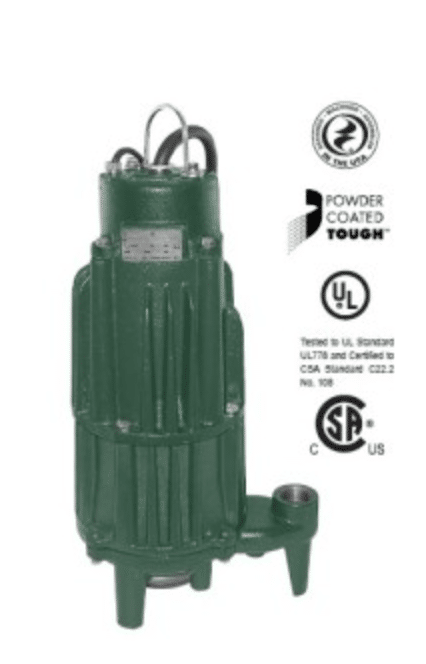
A Complete Guide to Wastewater Pumps
As wastewater treatment becomes increasingly important in the United States, wastewater pumps have become critical components of the process. Wastewater pumps are essential for the transportation and treatment of wastewater and help move large volumes of wastewater through treatment facilities, making the process more efficient.
Wastewater pumps are used in various applications, including municipal wastewater treatment plants, industrial wastewater treatment facilities, and agricultural operations. In this comprehensive guide, we will take you through everything you need to know about wastewater pumps, including the importance of wastewater pumps, the various types of wastewater pumps, and several key factors to consider when selecting a wastewater pump for your needs.
Continue reading below to learn more and discover why C&B Equipment is the preferred partner for businesses of all sizes looking for a reliable industrial equipment distributor and service company.
The Various Types of Wastewater Pumps
Wastewater management is a crucial aspect of modern infrastructure, ensuring our environment remains clean and sustainable. Central to this process are wastewater pumps, which play a pivotal role in transporting and treating wastewater efficiently.
Here’s a look at some of the most common types of wastewater pumps used today:
Centrifugal Pumps
Centrifugal pumps are commonly used in wastewater treatment facilities due to their versatility and ability to move large volumes of wastewater quickly. Centrifugal pumps use a rotating impeller to spin the wastewater, creating centrifugal force that moves the fluid through the pump and the treatment process. Centrifugal pumps are easy to install and maintain and can handle both high and low flow rates, making them a good choice for applications where large volumes of wastewater need to be pumped over long distances.
Positive Displacement Pumps
Positive displacement pumps are ideal for applications where precise flow rates are required. These pumps work by trapping a specific amount of wastewater and then displacing it to create a pressure differential. This pressure differential then forces the wastewater through the pump housing. Positive displacement pumps are well-suited for pumping wastewater that contains solids or debris and are typically used in industries such as food and beverage processing, pharmaceutical manufacturing, and chemical processing.
Submersible Pumps
Submersible pumps are designed to operate underwater and are commonly used in wastewater treatment applications where the pump needs to be submerged in the wastewater. These pumps are typically more efficient than other types of wastewater pumps and are available in both single-stage and multi-stage designs. Submersible pumps are ideal for applications with high lift requirements and limited space.
Reciprocating pumps
Reciprocating pumps are a type of positive displacement pump that works by using a piston to move wastewater through the pump housing. Reciprocating pumps are often used to pump wastewater from lift stations to wastewater treatment plants. Reciprocating pumps are known to be very reliable and can handle wastewater that contains solids and debris, but can be expensive to maintain.
Air Pressure pumps
Air pressure pumps are a type of wastewater pump that uses compressed air to force wastewater through a pipe. Air pressure pumps are often used in lift stations and other applications where wastewater needs to be pumped over a short distance. Air pressure pumps are relatively inexpensive and easy to maintain but can be less efficient than other wastewater pumps.
Macerator Pumps
Macerator pumps are a type of wastewater pump used to cut up solids and debris in wastewater. This makes it easier to pump the wastewater through pipes and prevents clogging. Macerator pumps are often used in residential and commercial applications where wastewater needs to be pumped from a basement or other low-lying area.
Exploring Wastewater Pump Design
When selecting a wastewater pump design for your application, understanding the key design elements can help you determine which pump is best suited for your specific wastewater treatment needs.
Pump Capacity
Pump capacity refers to the amount of water a pump can move within a specified time frame. It is generally measured in gallons per minute (GPM) or cubic meters per hour (m3/hr).
Head Pressure
Head pressure is the force required to move water against gravity and other resistance forces in a wastewater treatment system. It is usually measured in feet or meters and is an essential factor in determining the pump’s performance.
Impeller Design
The impeller is a critical component of any wastewater pump responsible for moving water through the system. Impellers come in different designs, including open, semi-open, and closed impellers.
Motor Specifications
The motor is another essential component of a wastewater pump, powering the impeller and driving the pump’s operation. When selecting a motor, factors such as horsepower, voltage, and frequency should be considered to ensure compatibility with your facility’s electrical system.
Pump Materials
The materials used to construct a wastewater pump can affect its durability and performance. Stainless steel, cast iron, and thermoplastic materials are commonly used in wastewater pump construction. Each material has advantages and disadvantages, and the selection should be based on factors such as the type of wastewater being treated, the operating environment, and the expected lifespan of the pump.
 Key Factors for Selecting a Wastewater Pump
Key Factors for Selecting a Wastewater Pump
When choosing a wastewater pump for your treatment facility, there are several key factors to consider. Understanding these factors will help you select the most suitable pump for your specific needs.
Pump Type
The first consideration is the type of wastewater pump. As previously mentioned, each type has unique features and advantages, so it’s essential to understand which type is most suitable for your specific application.
Pump Design
The design of the pump is also critical. Considerations such as pump capacity, head pressure, impeller design, and motor specifications will impact the efficiency and effectiveness of the pump in your facility.
Pump Maintenance
Maintenance is another critical factor to consider. Regular maintenance routines, including inspections, cleaning, lubrication, and troubleshooting common issues, are crucial to ensure optimal performance and longevity of the pump. Neglecting maintenance can result in costly repairs and downtime for your facility.
Cost and Energy Efficiency
Cost and energy efficiency are also essential factors to consider. While it may be tempting to choose a cheaper pump, investing in a higher-quality pump will ultimately save you money in the long run. Additionally, choosing an energy-efficient pump will reduce your facility’s energy consumption and lower your operating costs.
Pump Materials
The materials used in the pump’s construction can also impact its effectiveness and longevity. Wastewater pump types made from high-quality materials will withstand the corrosive effects of wastewater and last longer than those made from cheaper materials.
Flow Rate Requirements
Finally, the required flow rate is a crucial factor to consider. Choosing a pump with the appropriate flow rate will ensure the wastewater is transported through the treatment process at the optimal rate.
Choose C&B Equipment: Your Trusted Industrial Equipment Distributor and Service Provider
Efficient wastewater treatment is vital in protecting public health and the environment and conserving water resources. Wastewater pump systems are critical components in these processes, and proper selection and maintenance can significantly enhance their efficiency and performance. By choosing the right wastewater pump system and following proper maintenance practices, you can ensure efficient and reliable operation while minimizing environmental impact and reducing operational costs.
At C&B Equipment, we understand you need reliable, efficient equipment to keep your business running smoothly. That’s why we offer a wide range of industrial equipment and services, including distribution, installation, maintenance, and repair.
We are proud to be a trusted partner for businesses of all sizes from a wide variety of industries in Kansas, Oklahoma, Missouri, Arkansas, and the Texas Panhandle. Above all else, we remain committed to providing our customers with the best possible service and support.
Contact C & B Equipment today for a free quote and learn more about how our team of highly experienced designers, engineers, fabricators, and technicians can help you achieve the most affordable and effective solutions for your needs.
